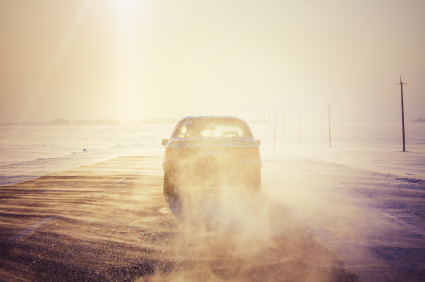 We depend on our vehicle to get us to our destinations no matter what the weather conditions are. But if we do not care for the engine, then it will not be as dependable. Winter is not the time when you want your vehicle to break down. This can create a very dangerous survival situation, especially if you do not have proper emergency supplies stowed in the trunk.
We depend on our vehicle to get us to our destinations no matter what the weather conditions are. But if we do not care for the engine, then it will not be as dependable. Winter is not the time when you want your vehicle to break down. This can create a very dangerous survival situation, especially if you do not have proper emergency supplies stowed in the trunk.
Ensure that your vehicle is primed to withstand the bouts of inclement weather by checking the following items.
- Antifreeze levels – ensure they are sufficient to avoid freezing.
- Battery and ignition system – should be in top condition and battery terminals should be clean.
- Brakes – check for wear and fluid levels.
- Exhaust system – check for leaks and crimped pipes and repair or replace as necessary. Carbon monoxide is deadly and usually gives no warning.
- Fuel and air filters – replace and keep water out of the system by using additives and maintaining a full tank of gas. A full tank will keep the fuel line from freezing.
- Heater and defroster – ensure they work properly.
- Lights and flashing hazard lights – check for serviceability.
- Oil – check for level and weight. Heavier oils congeal more at low temperatures and do not lubricate as well.
- Thermostat – ensure it works properly.
- Windshield wiper equipment – repair any problems and maintain proper washer fluid level.
- Install good winter tires – Make sure the tires have adequate tread. All-weather radials are usually adequate for most winter conditions. However, some jurisdictions require that to drive on their roads, vehicles must be equipped with chains or snow tires with studs.
- Have winter related emergency supplies stored away.
